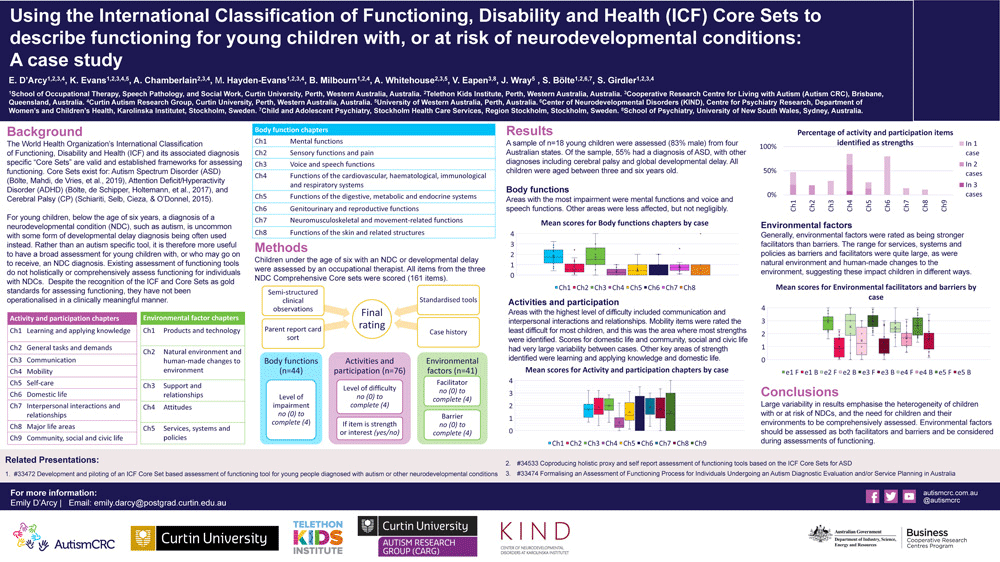Using the International Classification of Functioning, Disability and Health (ICF) Core Sets to describe functioning for young children with, or at risk of neurodevelopmental conditions: A case study
Abstract
The World Health Organization’s International Classification of Functioning, Disability and Health (ICF) and its associated diagnosis specific “Core Sets” are valid and established frameworks for assessing functioning.
For young children, below the age of six years, a diagnosis of a neurodevelopmental condition (NDC), such as autism, is uncommon with some form of developmental delay diagnosis being often used instead. Rather than an autism specific tool, it is therefore more useful to have a broad assessment for young children with, or who may go on to receive, an NDC diagnosis. Existing assessment of functioning tools do not holistically or comprehensively assess functioning for individuals with NDCs. Despite the recognition of the ICF and Core Sets as gold standards for assessing functioning, they have not been operationalised in a clinically meaningful manner.
Citation
E. D’Arcy, K. Evans, A. Chamberlain, M. Hayden-Evans, B. Milbourn, A. Whitehouse, V. Eapen, J. Wray, S. Bölte, S. Girdler (2020). Using the International Classification of Functioning, Disability and Health (ICF) Core Sets to describe functioning for young children with, or at risk of neurodevelopmental conditions: A case study [Poster]. International Society for Autism Research 2020 Annual Meeting, 3 June, virtual. International Society for Autism Research.
Program
Early Years